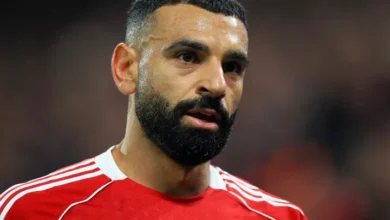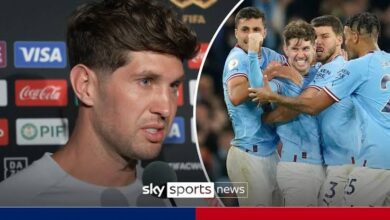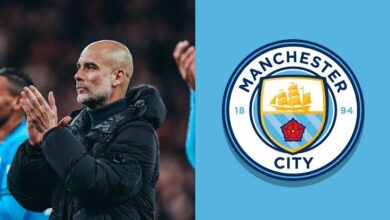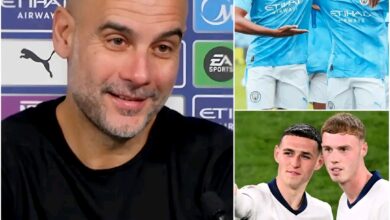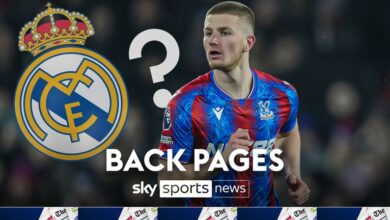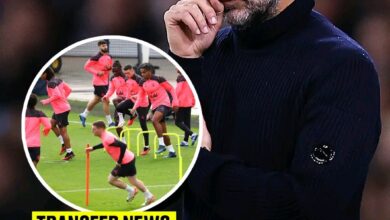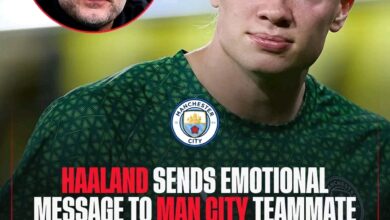Martin Zubimendi at Arsenal: Premier League Adaptation Challenges and Tactical Implications
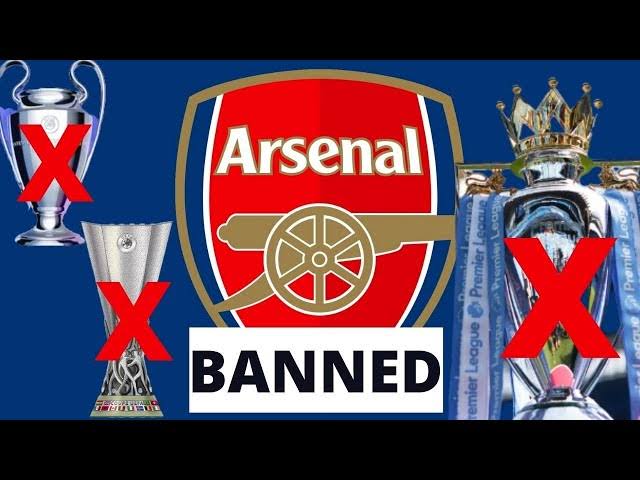
Arsenal’s summer transfer window has been marked by strategic acquisitions aimed at strengthening their squad for another Premier League title challenge. Among the most significant additions is Martin Zubimendi, the Spanish midfielder who has made the transition from Real Sociedad to the Emirates Stadium. However, his debut performance against Newcastle United in a pre-season friendly has raised important questions about his adaptation to English football, particularly regarding his disciplinary record and playing style.
The concerns surrounding Zubimendi’s integration into Mikel Arteta’s system extend beyond mere tactical adjustments. Former FIFA referee and ex-PGMOL chief Keith Hackett has highlighted potential disciplinary issues that could significantly impact Arsenal’s campaign, drawing parallels to previous Arsenal midfielders known for their aggressive playing style. This analysis examines the multifaceted challenges facing both player and manager as they navigate this crucial transition period.
Martin Zubimendi’s introduction to Arsenal supporters came during the pre-season friendly against Newcastle United on July 27, 2025. While the Gunners secured a convincing victory with goals from Mikel Merino, Martin Odegaard, and an unfortunate Alex Murphy own goal, the focus quickly shifted to concerning aspects of Zubimendi’s performance that could prove problematic in the long term.
The most telling moment came just 37 minutes into his Arsenal debut when Zubimendi received his first yellow card in Arsenal colors. This early booking was particularly significant as it represented his very first foul in an Arsenal shirt, immediately highlighting the aggressive nature of his playing style and raising questions about his ability to moderate his approach for English football.
The speed with which Zubimendi found himself in the referee’s book speaks to a deeper issue that transcends individual matches. His playing style, while effective in La Liga, may require significant modification to succeed in the Premier League, where referees often have different interpretations of acceptable challenges and where the pace and physicality of the game can lead to more frequent confrontational situations.
Arsenal’s recent history with midfield discipline provides crucial context for understanding the significance of Zubimendi’s early booking. The club has consistently struggled with maintaining on-field discipline, particularly among their central midfielders who are tasked with breaking up play and providing defensive solidity.
Granit Xhaka, who recently departed for Bayer Leverkusen and is now linked with a move to Sunderland, serves as the most prominent recent example of this trend. Throughout his Arsenal career, Xhaka’s aggressive playing style and tendency to commit rash challenges resulted in numerous suspensions and disciplinary issues that often left the team undermanned during crucial periods of the season.
The Swiss international’s departure was partly motivated by Arsenal’s desire to move away from this pattern of indiscipline. However, Zubimendi’s early showing suggests that Arteta may have inadvertently replaced one disciplinary concern with another, potentially perpetuating a cycle that has hindered the club’s progress in recent seasons.
Arsenal’s disciplinary record last season was among the worst in the Premier League, with the team receiving the highest number of red cards in the division. This statistic not only reflects poorly on the club’s discipline but also had tangible impacts on their competitive performance, with key players missing crucial matches due to suspension.
Keith Hackett’s assessment of Zubimendi’s situation carries significant weight given his extensive experience in football officiating at the highest levels. As a former FIFA referee and ex-chief of the Professional Game Match Officials Limited (PGMOL), Hackett possesses unique insights into how referees interpret player behavior and the potential consequences of aggressive playing styles.
Hackett’s observations about Zubimendi are particularly concerning because they’re based on extensive viewing of the player’s performances in La Liga. His warning that the Spanish midfielder “runs the risk in England of not only getting a yellow, but also facing suspensions” suggests that the disciplinary issues observed in the Newcastle friendly are not isolated incidents but rather indicative of a consistent pattern of play.
The former referee’s emphasis on the differences between La Liga and Premier League officiating highlights a crucial aspect of Zubimendi’s adaptation challenge. Spanish football often allows for more physical challenges without punishment, while English referees tend to be stricter about certain types of tackles and confrontational behavior. This cultural and regulatory difference means that playing styles that are perfectly acceptable in Spain may result in frequent bookings and suspensions in England.
Hackett’s prediction about potential red cards is particularly alarming given Arsenal’s title ambitions. In a competitive league where every point matters, losing key players to suspension can be the difference between success and failure. The timing of such suspensions is often unpredictable and can occur during crucial matches against direct rivals or in important cup competitions.
Mikel Arteta faces a complex tactical and man-management challenge in integrating Zubimendi into his system while minimizing disciplinary risks. The Arsenal manager’s experience as both a player and coach gives him unique insights into the demands of Premier League football, but successfully modifying a player’s ingrained playing style represents one of football’s most difficult challenges.
Arteta’s tactical philosophy relies heavily on aggressive pressing and quick transitions between defensive and attacking phases. This system requires midfielders who can win the ball back quickly and efficiently, often through robust challenges. However, the line between effective defensive work and reckless challenges is often razor-thin, and players must develop an intuitive understanding of when to commit to tackles and when to show restraint.
The Spanish manager’s task is further complicated by the need to maintain Zubimendi’s effectiveness while moderating his aggression. The midfielder was presumably signed for his ability to break up play and provide defensive stability, qualities that could be diminished if he becomes overly cautious about making challenges. Finding the right balance between aggression and discipline will be crucial to maximizing Zubimendi’s contribution to the team.
Arteta’s approach will likely involve intensive video analysis sessions, focusing on situations where Zubimendi can make challenges safely and effectively. Additionally, the manager will need to develop alternative tactical solutions for periods when key players are suspended, ensuring that the team’s competitive level doesn’t drop significantly during these unavoidable absences.
Zubimendi’s arrival is part of a broader summer transfer strategy that also includes Viktor Gyokeres and Noni Madueke, suggesting that Arsenal are making significant investments in their quest for Premier League glory. However, the success of this strategy depends not only on individual player quality but also on how effectively these new signings can adapt to English football’s unique demands.
The pressure on Arteta to deliver silverware adds another layer of complexity to the Zubimendi situation. Arsenal supporters and club hierarchy have high expectations following several seasons of near-misses in major competitions. The manager cannot afford to have key players regularly unavailable due to suspension, particularly during crucial periods of the season when squad depth is tested.
The integration of multiple new players also means that Arteta must manage several adaptation processes simultaneously. While Gyokeres and Madueke face their own challenges in adjusting to Premier League football, Zubimendi’s disciplinary concerns may require disproportionate attention from the coaching staff, potentially impacting the development of other new signings.
Zubimendi’s reputation in La Liga was built on his ability to control the tempo of matches through intelligent positioning and timely interventions. At Real Sociedad, he operated in a system that rewarded technical proficiency and tactical intelligence, qualities that translated well to the Spanish national team setup where he has been a regular contributor.
However, the transition from La Liga to Premier League football involves more than just tactical adjustments. The pace of English football is notably higher, with less time for players to make decisions and execute techniques. This increased tempo can lead to situations where players make rushed challenges or commit to tackles when they might have chosen differently with more time to assess the situation.
The physical demands of Premier League football also differ significantly from those in Spain. While La Liga is certainly competitive, the relentless nature of English football, with its high-intensity pressing and constant physical confrontations, can cause players to become fatigued more quickly. Tired players are more likely to make poor decisions regarding when and how to make challenges, potentially leading to increased bookings and suspensions.
## Communication and Cultural Adaptation
Hackett’s suggestion that Arteta will need to have “talks with him and his fellow teammates” highlights the importance of communication in addressing disciplinary concerns. These conversations must go beyond simple instructions about avoiding bookings; they need to address the cultural and tactical differences that Zubimendi will encounter in English football.
The role of experienced teammates in this adaptation process cannot be understated. Players like Martin Odegaard, who have successfully transitioned from other European leagues, can provide valuable insights into the specific challenges of Premier League football. Similarly, defenders and fellow midfielders can help Zubimendi understand the nuances of English officiating and how to position himself to make effective challenges without attracting unnecessary attention from referees.
Language barriers, while less significant for a Spanish speaker working under a Spanish manager, can still impact the speed and effectiveness of this adaptation process. Quick communication during matches is crucial for coordinating defensive efforts and ensuring that challenges are made at the right times and in the right situations.
The risk of suspension represents a quantifiable threat to Arsenal’s competitive prospects. In a league where squad rotation is essential due to fixture congestion, losing a key midfielder for multiple matches can have cascading effects on team performance and tactical flexibility.
Premier League suspension rules are particularly punitive for players who accumulate bookings quickly. Five yellow cards in the first half of the season result in a one-match suspension, while ten yellow cards over the full season trigger a two-match ban. Additionally, serious foul play or violent conduct can result in immediate red cards and longer suspensions.
For Arsenal, operating without Zubimendi during crucial periods could force tactical adjustments that compromise their overall effectiveness. Alternative formations or player selections might not provide the same defensive stability or creative distribution that Zubimendi offers, potentially leading to dropped points in winnable matches.
Despite the concerning early signs, there are several strategies that Arsenal can employ to minimize the risk of Zubimendi’s disciplinary issues impacting their season. These approaches require coordinated efforts from the coaching staff, medical team, and the player himself.
Video analysis represents one of the most effective tools for addressing tactical discipline issues. By reviewing footage of Zubimendi’s challenges in both successful and unsuccessful situations, the coaching staff can help him identify patterns in his decision-making and develop better judgment about when to commit to tackles.
Physical conditioning also plays a crucial role in maintaining discipline. Well-conditioned players are less likely to make desperate challenges born of fatigue or poor positioning. Arsenal’s fitness staff will need to ensure that Zubimendi maintains peak physical condition throughout the demanding Premier League season.
Mental preparation and sports psychology can also contribute to improved on-field discipline. Working with specialists to develop better emotional control and decision-making under pressure can help Zubimendi avoid the types of reactive challenges that often result in bookings.
The Zubimendi situation represents a microcosm of Arsenal’s broader challenges in transitioning from a team that competes for top-four finishes to one capable of winning major trophies. The margins for error at the highest level are extremely small, and disciplinary issues that might be manageable for a mid-table team can prove decisive in title races.
Arteta’s ability to successfully integrate Zubimendi while managing his disciplinary concerns will serve as an important test of his man-management skills and tactical flexibility. Success in this area could provide a template for handling similar challenges with future signings, while failure could result in a costly addition that fails to deliver expected returns.
The broader implications extend to Arsenal’s transfer strategy and scouting network. If Zubimendi’s disciplinary issues prove problematic, it may indicate a need for more comprehensive evaluation of how players’ styles will translate to Premier League football, rather than focusing primarily on technical ability and tactical fit.
Martin Zubimendi’s early experiences in Arsenal colors have highlighted both the promise and the perils of his high-profile summer transfer. While his technical abilities and tactical intelligence made him an attractive addition to Mikel Arteta’s squad, the disciplinary concerns raised by his debut performance represent a significant challenge that could impact Arsenal’s competitive prospects.
Keith Hackett’s expert warnings about suspension risks should serve as a wake-up call for both player and manager. The former referee’s insights, based on extensive observation of Zubimendi’s playing style in La Liga, suggest that adaptation to Premier League officiating standards will require significant adjustments in approach and mentality.
The success of Zubimendi’s integration will depend on multiple factors: his willingness to modify his playing style, Arteta’s ability to provide effective guidance and tactical frameworks, and the support of his teammates in navigating the cultural and competitive differences between Spanish and English football.
For Arsenal, the stakes extend beyond individual player development. In a competitive Premier League where Manchester City, Liverpool, and other rivals maintain consistently high standards, the margin for error is minimal. Disciplinary issues that result in key player suspensions during crucial periods could prove decisive in determining whether the Gunners achieve their ultimate objective of winning major silverware.
The early warning signs from Zubimendi’s debut should prompt immediate action from Arsenal’s coaching staff. Proactive measures to address disciplinary concerns, combined with tactical adjustments that minimize risky situations, could help realize the midfielder’s potential while avoiding the pitfalls that have plagued similar players in the past.
Ultimately, Zubimendi’s Arsenal career will be defined not just by his technical contributions but by his ability to adapt to the unique demands of English football. The early challenges are significant, but they are not insurmountable provided that all parties involved recognize the importance of addressing them quickly and comprehensively.
The coming months will provide crucial evidence of whether Arsenal’s investment in Zubimendi represents shrewd business or a costly miscalculation. The answer will have implications not only for the player’s individual career trajectory but for Arsenal’s broader ambitions in domestic and European competition.








